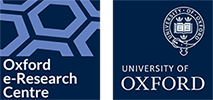24 Oct 2019
Orchestral performance co-created with artificial intelligence premieres at the Barbican
An exciting new orchestral work called Alter premieres on 2nd November
An exciting new orchestral work called Alter premieres at the Barbican on 2nd November. The piece is written by composer Robert Laidlow, a researcher in AI-Assisted Composition in the Centre for Practice & Research in Science & Music (PRiSM) at the Royal Northern College of Music. The PRiSM collaboration includes Oxford academics Professor David De Roure (Oxford e-Research Centre) and Professor Marcus du Sautoy (Mathematics Institute), and is directed by composer Emily Howard.
Alter is about, and utilises, artificial intelligence. Through three phases, it traces the development of an artificial mind: from hazy, unformed conception through to a complex and creative self. Between each phase this curious and perfectionist mind dives into its own code to retrain and develop itself.
Commissioned by the Barbican as part of a musical tribute to Ada Lovelace, Alter links the imagined technology with the real. The text is entirely written by an AI that audibly develops in coherence and philosophical scope. At first, it learns from merely Ada Lovelace’s correspondence. This is expanded to wider 19th century writing and finally the extent of the Internet through OpenAI’s GPT-2 algorithm. In this way the narrative of the scene reflects the data science behind its production.
Professor De Roure comments "This has been a creative process directly involving the AI. It's not about whether an AI can do what a human can, but how human creativity is assisted by AI. It's exciting to establish these new creative practices – often surprising, sometimes disruptive, always provocative".
Robert Laidlow composed Alter partially incorporating music generated by MuseNet Music Transformer (OpenAI), designed and provided by Christine Payne. The text was written by artificial intelligence developed using datasets coded by David De Roure at The Alan Turing Institute, and by OpenAI’s GPT-2, trained upon Lovelace’s correspondence provided by Professor Ursula Martin (Oxford and Edinburgh University). The team gratefully acknowledges support from The Alan Turing Institute, the Electronic Enlightenment team at the Bodleian Libraries, Oxford, the EPSRC FAST programme grant , the North West Consortium Doctoral Training Partnership funded by AHRC, Cambridge Design Partnership, and Research England. Emily Howard provided curatorial guidance throughout the work’s creation.
Links
PRiSM, Royal Northern College of Music
Listing for this event on the Barbican website
Fusing Audio and Semantic Technologies project page
Electronic Enlightenment — letters & lives online




